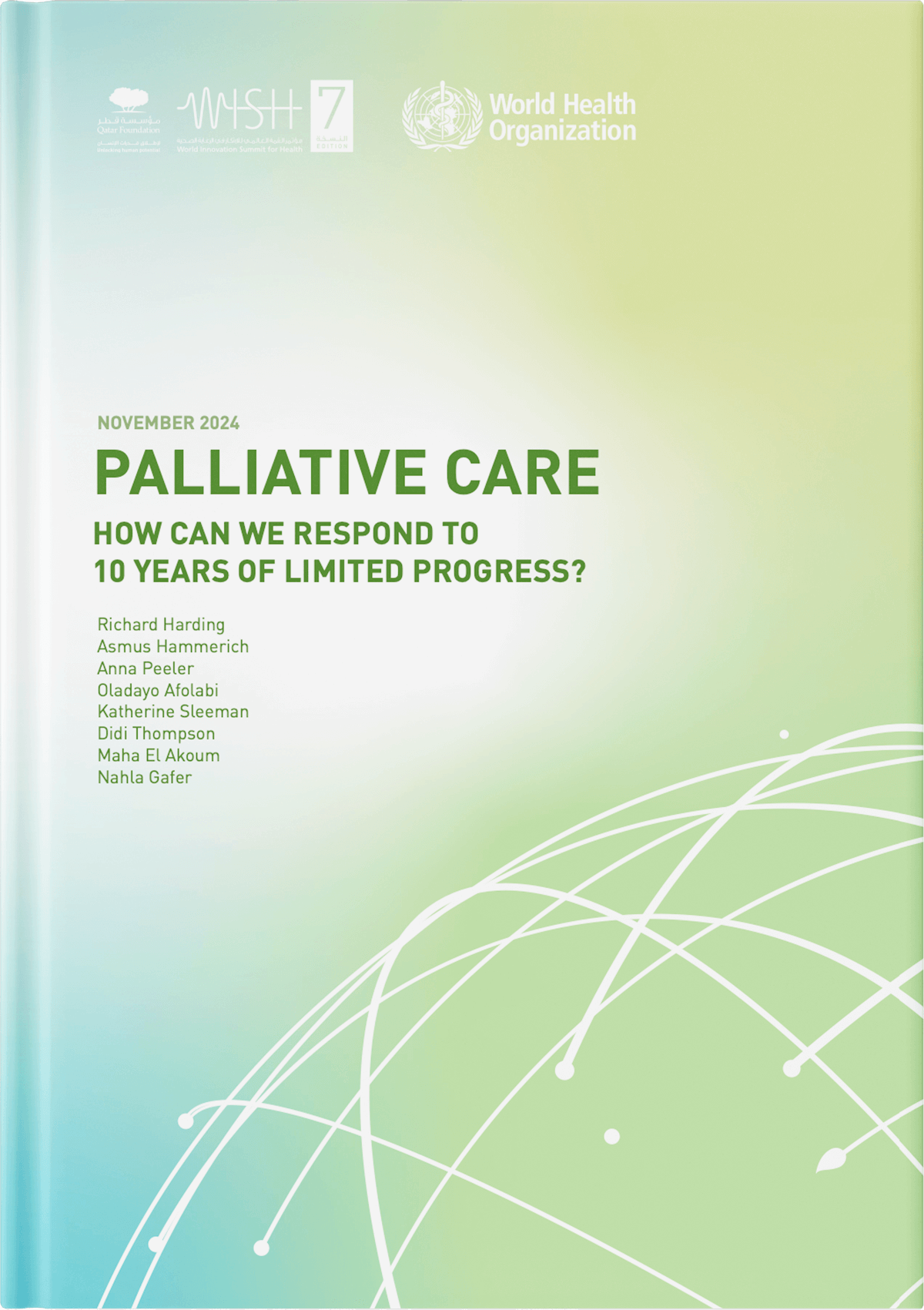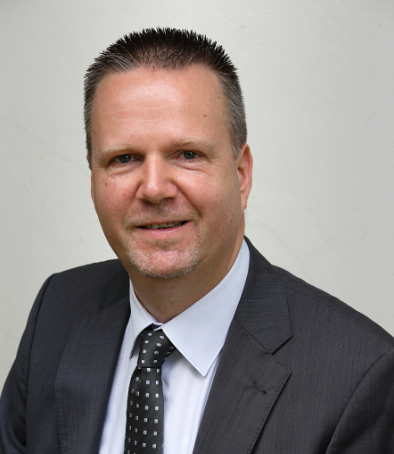
Palliative care is holistic, person-centered care for children and adults living with life-limiting and life-threatening illness, and is also for the friends and family who care for them. It can be provided by multidisciplinary teams of specialists or non-specialists according to case complexity and available resources. Many people with life-limiting illness face significant, multidimensional burdens of health-related suffering, including pain, fatigue, dyspnea, depression, psychosocial distress and delirium. The people who care for them can also have burdensome physical, psychological, social and spiritual problems such as weight loss, insomnia, anxiety, complicated grief, impaired social relationships and disturbance of meaning in life. These often require high healthcare use, including unplanned admissions and overly intensive treatment, burdening people and health systems with high costs. By 2060, the number of people dying with serious health-related suffering across all age groups is expected to increase by 87 percent. Ten years ago, World Health Assembly (WHA) Resolution 67.19 on Palliative Care called for global strengthening of quality, accessible palliative care service for people of all ages as an essential component of universal health coverage (UHC). The WHA Resolution 67.19, and the inclusion of palliative care as an essential health service under UHC and the Declaration of Astana at the Global Conference on Primary Health Care, were in response to unmet, and growing need for palliative care. Evidence suggests that progress has been extremely slow in expanding access and improving quality of palliative care services globally, particularly in low- and middle-income countries (LMICs). To address the growing demand, and correct the lack of progress on the recommendations of WHA Resolution 67.19, it is crucial to use evidence for palliative care interventions, models and delivery. This report includes multiple case studies that highlight innovative and transformative models of palliative care. They serve as exemplars for what targeted intervention can achieve in palliative care delivery, education and training, outcome measurement, cultural adaptation, needs assessment and policy development. The report details the persisting and worsening inequities in access to and quality of palliative care services globally. Geographic, social, cultural and health-literacy related inequities in access to and quality of palliative care services persist. Drivers include access to essential medicines such as opioids, clinician and public reluctance to address issues around disease progression, and presumptions that palliative care is solely for people with cancer or those who are close to dying. The report concludes with a warning that, unless urgent, evidence-informed, co-ordinated action is taken, the benefits of palliative care will not be achieved under UHC to meet the growing demand for care. We recommend priority action areas to expand access to timely and effective palliative care for children and adults globally. Based on the World Health Organization’s (WHO’s) six components of palliative care development, these priority areas include: developing national palliative care policies that prioritize evidence-based guidelines and sustainable funding; empowering and facilitating community action in service development, research, and peer support; improving equal access to palliative care services for people of all ages without sacrificing quality, paying particular attention to LMICs and vulnerable populations; expanding education and training for both specialists and non-specialists at all levels; ensuring access to essential medicines; and building research capacity.

Prof. Richard Harding
Professor Richard Harding is the Interim Executive Dean of the Faculty of Nursing, Midwifery & Palliative Care at King’s College London. He holds the Herbert Dunhill Chair in Palliative Care & Rehabilitation at the Cicely Saunders Institute. His research program explores the global health dimensions of palliative care, seeking to expand access while maintaining quality. His work emphasizes the strengthening of health systems and the development and testing of outcome measures and complex interventions. In addition to his research endeavors, Professor Harding is the Vice Chair of the World Hospice Palliative Care Alliance and is the Founding Director of the Centre for Global Health Palliative Care. He is also a Trustee of AIDS Impact and of Marie Curie, where he co-chairs the Research and Policy Committee. He holds a visiting Chair in Palliative Care at the University of Cape Town, and at Manipal Academy of Higher Education.

Dr. Asmus Hammerich
Dr. Hammerich holds a Medical Doctor degree (Bachelor of Medicine, Bachelor of Surgery, 1991) and a research Doctor of Medicine (1992). He also earned aamaster’s degree in international public health (Master of Science in Public Health for Developing Countries 2000) from the London School of Hygiene & Tropical Medicine, in United Kingdom (UK). He is a Member of the British Royal College of General Practitioners (1996) and a Fellow in Family Medicine in Germany ( 2000). Dr. Hammerich is specialized in the prevention and control of noncommunicable diseases (NCDs), as well as the promotion of mental health and the management of substance abuse in the 22 countries of the World Health Organization (WHO) Eastern Mediterranean Region, where he has directed the related technical department since November 2015. Prior, he was the WHO Country Representativein Uzbekistan (WHO European Region) and the Deputy WHO Representative in Laos People’s Democratic Republic (WHO Western Pacific Region) for a total of eight years. Before that, he led bilaterally supported basic health projects in West Bengal, India (2000-2004) and East Nusa Tenggara, Indonesia (2004-2008). Dr. Hammerich has over 30 years of global work experience in public health (PH) and clinical care acquired in hospital and general practice in the UK and Germany as well as bilateral (German Deutsche Gesellschaft für Internationale Zusammenarbeit (GIZ)and British Department for International Development (DFID)/UK AID) and multilateral (WHO) public health country programs around the world (Five WHO Regions except the Americas). He has over 20 years of on-site country management experience in PH leadership positions in Europe, East and Southern Africa, South-, South-East and Central Asia and the Middle East. Dr. Hammerich also has extensive skills in strategic policy advice and technical assistance for NCDs, mental health and health systems strengthening. Moreover, he is part of the senior management team of the WHO Eastern Mediterranean Regional Office in Cairo, Egypt. He has a particular interest in organizational development, change management, and communication. Dr. Hammerich is a member of different international professional bodies and has received several awards, in addition to having numerous peer-reviewed publications to his name.
